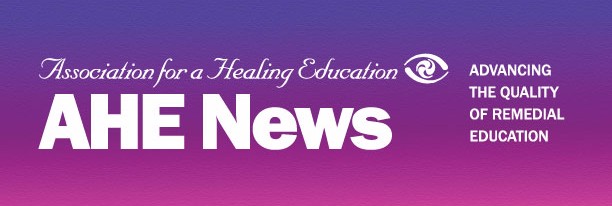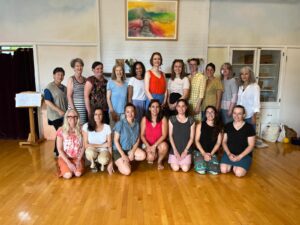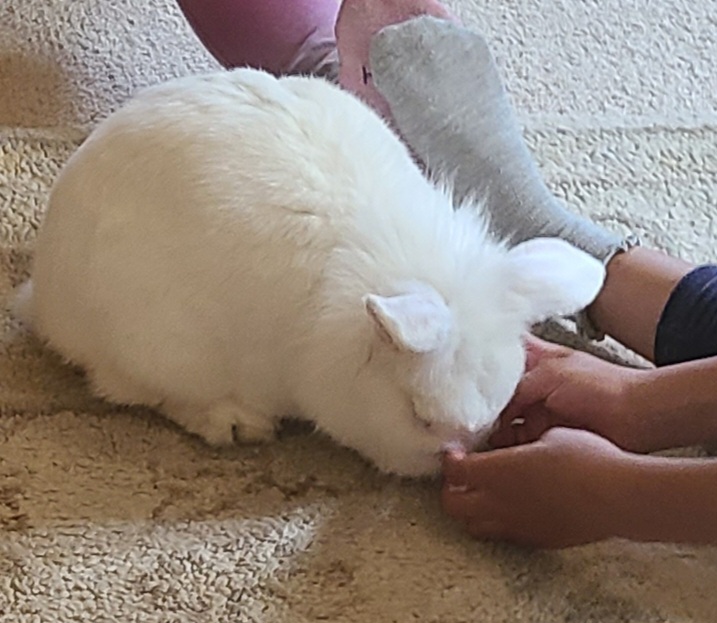
President's Letter Summer 2024
Dear Friends,
We here at AHE wish you all a restful and restorative summertime. We have had an inspiring and rewarding year through our online consulting program ( see below), monthly Pop-Up sessions featuring many of our ESP grads, and our final year of work with Cycle 13 of our ESP program. We thank our enthusiastic participants.
As we near the deadline date in October, The Educational Support Program is now accepting applications for the “Cycle 14” session. More information can be found regarding this multi-faceted and well-rounded Student Support Training Program at: ESP Training Program Info
***
We would like to honor and congratulate the members of Cycle 13 as they work to complete the last few steps of their training, and become certified Extra Lesson providers!

L to R front row: Mea Hilton, Luiza Kwiatkowska, Jenna Muñiz Lieberman, Uxune Hernandez Zuazua, Kelly Larsen, Ellen Kraft McCune, Miriam Greiser
L to R back row: Elyce Perico (co-director), Polly Saltet (Eurythmy), Julia King, Cate Decker, Naomi Nocera, Bonnie Sheehan Singleton, Molly Urich, Christina Chirdon-Jones, Tasha England, Dawn Zebolis-Sekella, Connie Helms (co-director)
***
This newsletter contains three articles: one by Mary Jo Oresti showing ways we can cultivate resilience in our students, another by Jada D'Angelo explaining how she uses a service dog in a school setting, and a third I wrote describing the manifold benefits of having an early childhood classroom rabbit. We hope you find them helpful.
Underlining the theme of the article on resilience, I often practice the Three-Fold Spiral, which is found in Audrey McAllen's book The Extra Lesson. Mary Jo Oresti offers guidance and an explanation of this exercise in an excellent video on the AHE website (scroll to the bottom of the home page). The exercises in Audrey’s book can often be helpful for adults, too– not only the children we work with-- particularly in times of stress.
We send our best wishes for a successful beginning of the school year.
Warm regards,
Betty Jane Enno
President, Association for a Healing Education
Bouncing Back
SHARED VIEWS OF RESILIENCE
Resilience is a concept that is widely understood as the ability to return quickly to a normal state after an unsettling event. This includes the ability to remain in an attentive yet relaxed state even during a disturbing event. Resilience is dependent on a number of factors including community support, health, security and education.
To read and/or download the entire article click here: Bouncing Back
Mary Jo is a founding board member of the Association for a Healing Education. She was one of the first teachers in the Supplemental Program at the Detroit Waldorf School and now teaches and consults online.

Noah the Therapy Dog
My son had been asking for a dog since he was three years old. Seven years later I could barely wait to surprise him with his tenth birthday present: a white puff ball of a goldendoodle, our beloved Noah....
To read and/or download the entire article click here: Noah the Therapy Dog
Jada D’Angelo is an avid animal lover and grew up on a small farm in the Texas Hill Country with horses, working dogs, livestock, guineas, chickens, and even emus. She loves working
with children of all ages and their families. After teaching for a decade in the private and public sectors nationally and abroad, she pursued a lifelong passion to help others and become a
counselor. Currently she serves approximately 500 students at the Austin Waldorf School, alongside her co-pilot, Noah.

Snowflake, the Stargarden Bunny
For many years, Snowflake has been a cherished member of our Stargarden kindergarten, serving as our esteemed “Service Bunny.” His father, Ginger, also held this honorable title before him, further solidifying our kindergarten classroom's legacy of bunny service, love, and companionship.
Having classroom animals available to children regularly provides many learning opportunities. Animals provide multi-sensory experiences that engage sight, hearing, touch, and smell, to name a few. Compassion and caring for other living creatures are enhanced, and social awareness of the animals' needs and ways to fulfill them as a class shared responsibility enhances a burgeoning sense of morality. The following are some examples of these benefits.
To read or download the entire article, click here: Service Bunny
